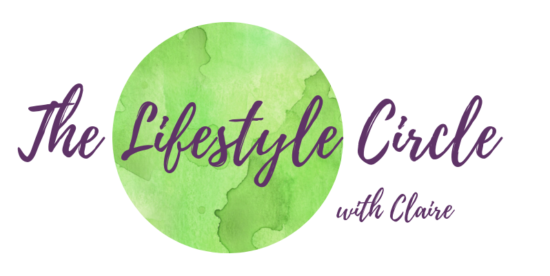“The richness (or lack of richness) of your microbiome is a better predictor of Western disease risk than your weight” from the brilliant book Gut Reactions by Justin and Erica Sonnenburg.
For ten years, I struggled with acne, eczema, and psoriasis. I had no idea there was a link between my skin and the Irritable Bowel Syndrome (IBS) that I also had.
This post uses affiliate links. Please see our affiliate disclosure & disclaimer below.
Trial and error
I saw my GP, dermatologists, gastroenterologists, a nutritionist, and alternative health practitioners. Each one of them prescribed a cream, lotion, pill, or another external remedy.
I tried many different diets and, working with a nutritionist, was advised to remove dairy, gluten, and sugar from my diet as well as random things like mushrooms, coffee, and beef. I was always disappointed with the results. I felt deprived and hungry and my skin wasn’t any better.
Some of the prescribed treatments helped me manage my symptoms, but nothing resolved the issues long term.
I eventually gave up trying to find a solution and instead focused on doing what I could to get as healthy as possible. I focused on drinking lots of water and eating a varied diet with lots of vegetables and green stuff. My previous meals were a bit beige, I realized.
A funny thing happened. My skin and gut issues started to clear up quite dramatically, as did other problems such as headaches and trouble with my sinuses.
The gut skin connection
I began to do a lot of research to figure out what had changed for me. I came across lots of information about our gut, more specifically our gut bugs, and the significant impact scientists believed they have on our health.
It turns out our gut bugs (collectively known as our microbiome) thrive when we feed them well. They like to eat dietary fiber from a wide variety of sources, including fruit, vegetables, legumes and unrefined whole grains such as brown rice. These were the foods I was making more of an effort to eat.
What I realised was that my poor little gut bugs were kinda starving. I just wasn’t eating enough of the foods they like to eat. Each skin-healing diet I tried left them, and me, hungry. And when our gut bugs are not able to feast on our food choices, they nibble away at the mucous layer that lines our gut allowing particles of undigested food through. This leads to inflammation in the body and an overwhelmed immune system, as well as gut and skin problems. You can read more about this in Gut Reactions.
Too much dairy is a problem for me. I was able to see that so clearly as my skin and gut issues improved. Eating a wider variety of foods meant I was eating less dairy by default making it easier to pinpoint it as a problem. But removing dairy wasn’t what cleared my skin.
It was adding goodness to my diet rather than removing things that made the difference.
Now, my skin is clear, and I honestly can’t remember the last time I had issues with my IBS. I get the occasional uncomfortable feeling in my gut or tingle on my skin if I’ve had a bit too much dairy (usually in the form of chocolate buttons!), but I now see these as helpful reminders that I need to keep doing what I can to take care of my gut bugs.
I follow Dr. Michael Mosley’s advice in his book The Clever Guts Diet and aim to eat 20-30 different varieties of fruits and vegetables every week. If this seems too overwhelming for you, try following my simple principle of Banish the Beige to make it easier.
What you eat matters more than what you don’t eat
When I speak to people about their skin, the big focus is usually on what they can remove. That’s a tiny part of the puzzle in my experience. It’s critical to make sure you’re eating enough of the good stuff. All of the recent research into our gut health confirms why, i.e., making sure those little gut bugs are well fed.
If you’re still a skeptic about the link between diet and skin, just think about it for a minute. Diet directly impacts our blood pressure and our risk of heart disease, cancer, and stroke. A poor diet can lead to type 2 diabetes and we know that what we eat has an impact on the health of our bones, our joints, our brain, and the health of our gut.
The health of every other organ in our body is affected by what we eat. It seems reasonable to conclude that what we eat must also affect our body’s largest organ, our skin.
I think our skin is far more complex than anyone realises. No doubt there’s a lot more we still need to learn. But what we know now is that eating a diet rich in fruits and vegetables gives our gut what it needs to be healthy. And a healthy gut helps us to get healthy skin, even if we don’t fully understand why.
My approach to healing the skin is to take all the help you can get from conventional medicine. But alongside this, do what you can to take good care of your gut bugs, and they’ll be able to do a better job of taking care of you.



